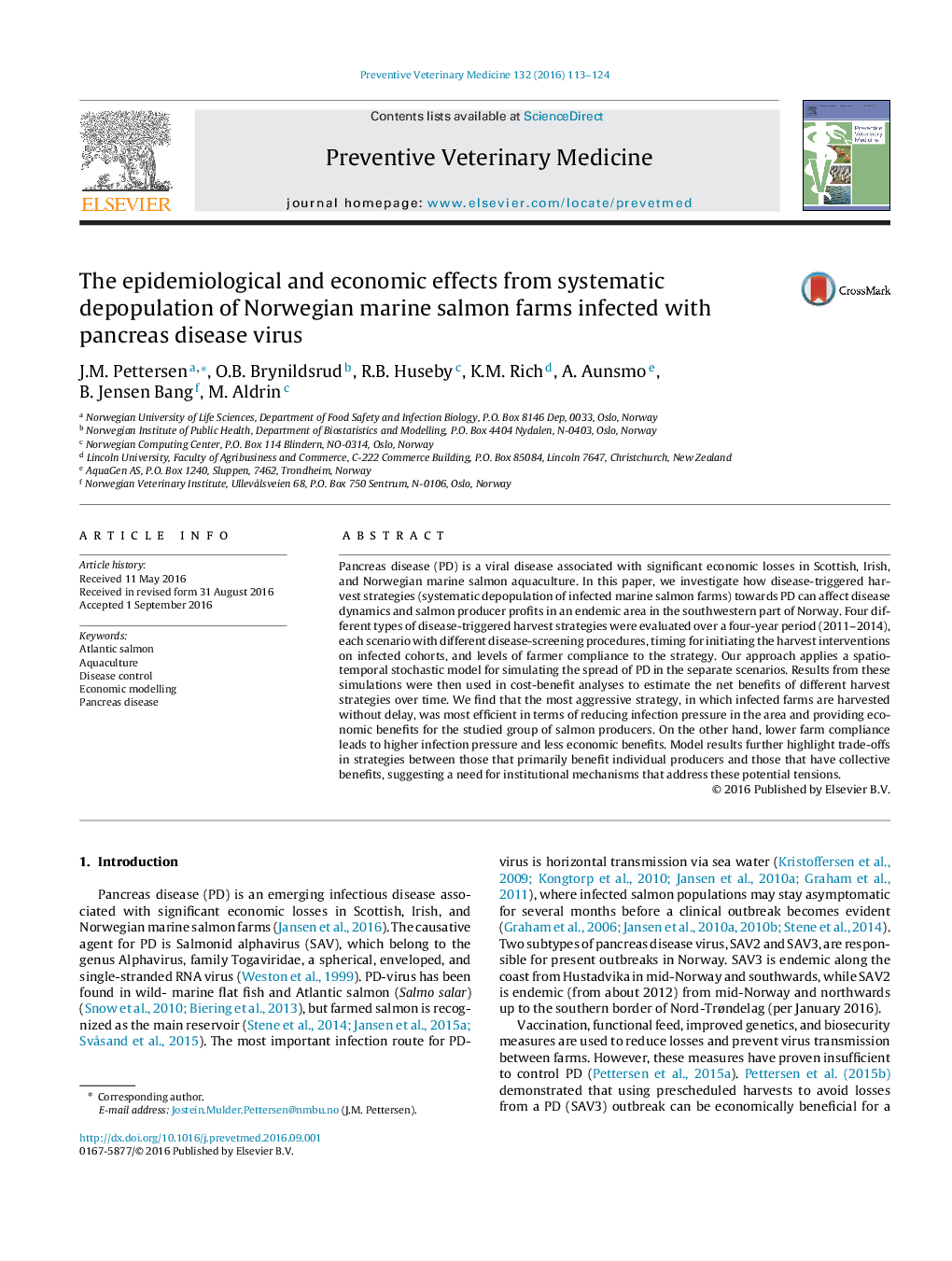| کد مقاله | کد نشریه | سال انتشار | مقاله انگلیسی | نسخه تمام متن |
|---|---|---|---|---|
| 2452365 | 1554156 | 2016 | 12 صفحه PDF | دانلود رایگان |
• Study explores depopulations as means to control pancreas disease (PD) in salmon aquaculture.
• Results suggest that depopulation strategies are cost-effective on a region level.
• Study highlights trade-offs between individual producer costs and collective benefits.
• Low compliance with strategy increase PD incidence and reduce collective benefits.
• Strategies request institutional mechanisms to share control costs across producers.
Pancreas disease (PD) is a viral disease associated with significant economic losses in Scottish, Irish, and Norwegian marine salmon aquaculture. In this paper, we investigate how disease-triggered harvest strategies (systematic depopulation of infected marine salmon farms) towards PD can affect disease dynamics and salmon producer profits in an endemic area in the southwestern part of Norway. Four different types of disease-triggered harvest strategies were evaluated over a four-year period (2011–2014), each scenario with different disease-screening procedures, timing for initiating the harvest interventions on infected cohorts, and levels of farmer compliance to the strategy. Our approach applies a spatio-temporal stochastic model for simulating the spread of PD in the separate scenarios. Results from these simulations were then used in cost-benefit analyses to estimate the net benefits of different harvest strategies over time. We find that the most aggressive strategy, in which infected farms are harvested without delay, was most efficient in terms of reducing infection pressure in the area and providing economic benefits for the studied group of salmon producers. On the other hand, lower farm compliance leads to higher infection pressure and less economic benefits. Model results further highlight trade-offs in strategies between those that primarily benefit individual producers and those that have collective benefits, suggesting a need for institutional mechanisms that address these potential tensions.
Journal: Preventive Veterinary Medicine - Volume 132, 15 September 2016, Pages 113–124
